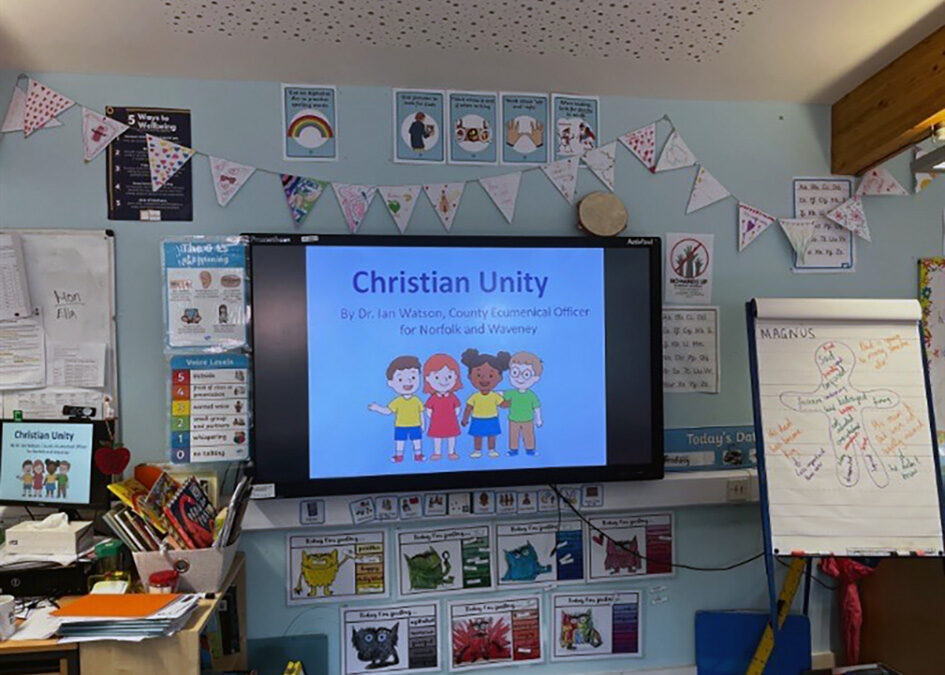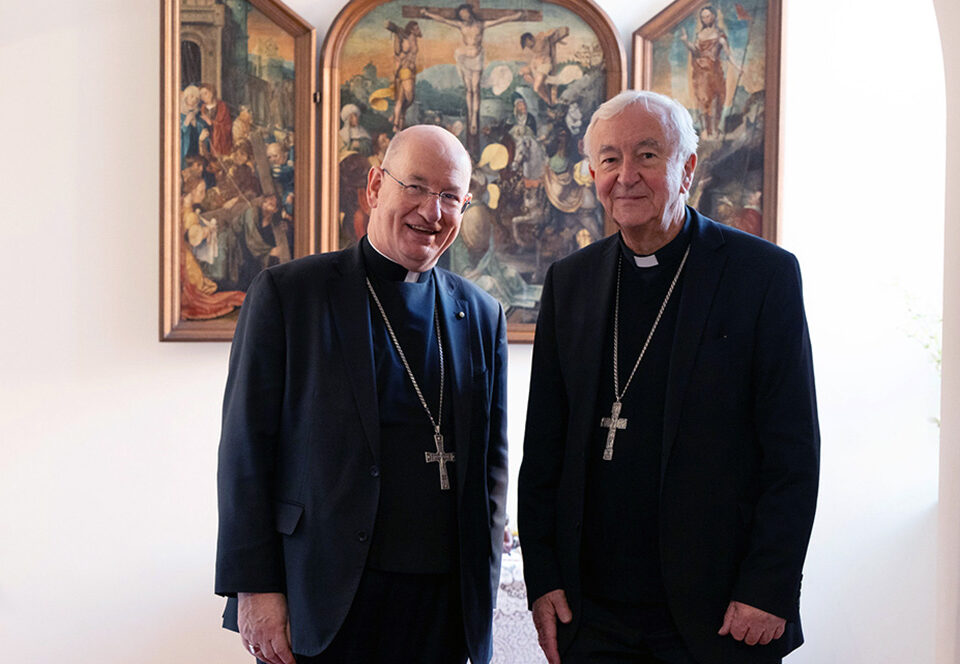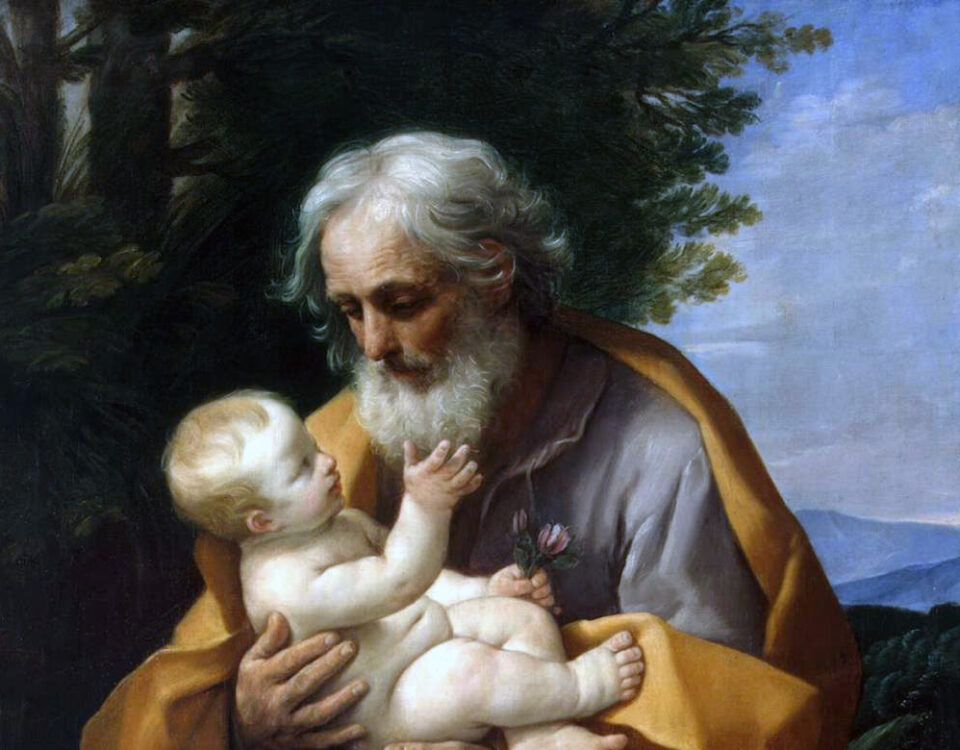
New Online Course Supports Catholic Faith Formation
July 7, 2025
Parish Strawberry Tea Raises Over £400 for Charity
July 9, 2025Dr Ian Watson, The County Ecumenical Officer for Churches Together in Norfolk and Waveney visited St Augustine’s Catholic Primary School in Costessey, Norwich, to inspire pupils about Christian unity.
Through engaging talks, stories, and lively discussions, children learned that Christians of all traditions can work together as one family in Christ. The pupils showed remarkable understanding and empathy, sharing thoughtful ideas on inclusion and kindness. Their enthusiasm demonstrated that the seeds of ecumenism are already taking root among the young.
Dr Watson, who also sits on Bishop Peter Collins’ Commission for Unity, reports on the day.
It was a joy and privilege to visit St Augustine’s Catholic Primary School in Costessey, Norwich, to speak with three classes of bright, thoughtful, and enthusiastic pupils about the meaning and importance of Christian unity.
The visit was centred around an interactive talk designed to explore why Christians from different traditions should walk, pray, and work together as one big family in Christ – even when we are not all the same.
The theme of the presentation was “Christian Unity: One but Not the Same.” Through colourful slides, questions, and stories, the children were introduced to the idea of ecumenism. A big word, as the presentation acknowledged, but one that simply means Christians from different churches working together because of their shared love for Jesus.
We began by unpacking what “ecumenical” means, explaining that it refers to Christians of various traditions — whether Anglican, Catholic, Methodist, Baptist, Orthodox, and so on, who all follow Jesus and read the Bible, coming together to support each other and share God’s love.
I explained my role as County Ecumenical Officer, and the kind of work I do across Norfolk to encourage cooperation between churches. From there we went deeper into the meaning of Christian unity itself: not about everyone becoming the same, but about recognising we are part of one family united in our love for Jesus.
The heart of the talk focused on why Jesus wanted unity. The children were told how Jesus prayed that all His followers would be one, not for His sake but so that the world would see God’s love through our togetherness.
Drawing on examples from the life of Jesus and the Trinity (Father, Son, and Holy Spirit) who are always united in love, we explored how unity helps us shine a light in the world, bring us strength, and helps us better share the Gospel.
I was so impressed with the children. The school has done a fantastic job in educating them in the faith. The children responded to my presentation and questions with intelligence, empathy, and warmth.
They grasped difficult concepts with ease, giving thoughtful responses and offering their own reflections.
Many of the children shared examples of how they themselves show kindness and inclusion, from playing with new children in the playground to giving money to charity, helping others in need, especially their classmates when they are feeling sad and lonely.
We also discussed why unity is important today. The children quickly understood that if Christians argue or stay apart, it can confuse or even put off those looking for faith. But when we are seen to love one another, help each other, and act as one, despite our differences we become a witness to the love of Jesus.
I used the image of a rainbow to explain how our different church traditions are like different colours where all are unique but together form something beautiful. That metaphor sparked lively conversation with pupils.
A particularly engaging part of the presentation involved practical ways the children could help with unity in their own lives. Their suggestions went far beyond what might have been expected from children so young. “Pray for people in other churches,” one said. “Don’t just invite your friends to play, include people you don’t know too well” added another. Others talked about being kind not just to Christians, but to everyone. Their natural inclusivity and sense of social justice was inspiring.
We concluded by summarising that Christian unity means loving and respecting each other, listening and learning from others, and remembering that even though we are different, we can still be one.
The pupils were reminded that Jesus smiles when we choose to love, forgive, and work together for the good of others — what Christians call the “Common Good.”
As a visitor, I was moved and uplifted by the quality of engagement shown by all three classes. The children at St Augustine’s demonstrated that the seeds of Christian faith are already growing strong in their hearts.
They listen politely and deeply. They reflected generously and responded with the kind of openness and hope that often (I have to observe) eludes adults. Their teachers deserve great credit for nurturing an environment where such rich spiritual and moral dialogue can flourish.
If Christian unity is to grow in our communities, it must start with conversations like these rooted in love and embraced by the youngest among us. Judging by the extraordinary response at St Augustine’s, the future of ecumenism in Norfolk is in good hands.
Click Here for a copy of the PowerPoint presentation
Click Here to find out more about Churches Together in Norfolk and Waveney
Article and photograph by Dr Ian Watson




